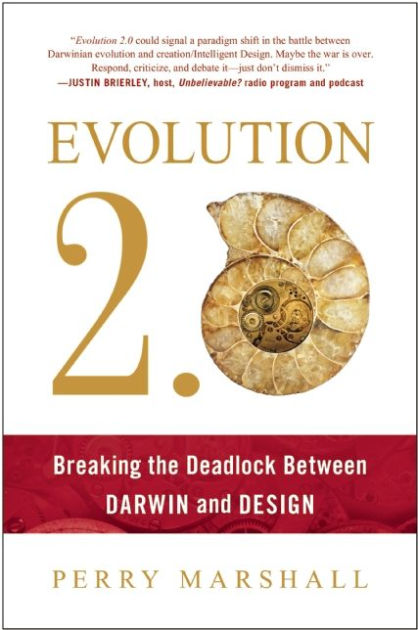|
home | what's new | other sites | contact | about |
|||
|
Word Gems exploring self-realization, sacred personhood, and full humanity
Perry Marshall's an electrical engineer / computer programmer
return to "Evolution" main-page
Editor's note: The following is from Perry Marshall's book, Evolution 2.0: Breaking the Deadlock between Darwin and Design
“In engineering shorthand, the formula for evolution was: RANDOM MUTATION + NATURAL SELECTION + TIME = EVOLUTION “In almost all popular literature, the standard explanation for evolution is that it is driven by random copying errors in DNA, which produce mutations of genes. These are said to occasionally change the creature in useful ways… They go out of their way to emphasize that there is no plan or purpose behind these changes… “How often are these random copying errors harmful? … neutral? … beneficial? … “In science, until you have numbers, processes, and successful experiments, you have nothing… I hoped to find experiments where someone had produced random mutations in plants or animals and observed evolution in the lab… Dobzhansky’s fruit flies “Theodosius Dobzhansky (1900-1975) was a highly regarded geneticist… He deliberately induced mutations in fruit flies by exposing them to radiation… [The flies] breed fast, gestating in two weeks, [therefore a researcher] could simulate the equivalent of 600 years of evolution in only 30 years… No New Forms Were Created “After decades of effort, these experiments produced every kind of defect you can imagine, including … legs growing out of [fly] heads… But no new organs or adaptive systems, let alone anything resembling a new species, were generated. Zero progress after 30 years… Mutations never lead to major improvements… “Major pro-evolution websites were … quiet about [this experiment]. The closest thing to an explanation I could find was ’30 years isn’t nearly enough time.’ “Thirty years is admittedly only an instant in geological time. But much later I would find out … that a few decades is more than enough time to produce a new species…”
|
|||
|
|
